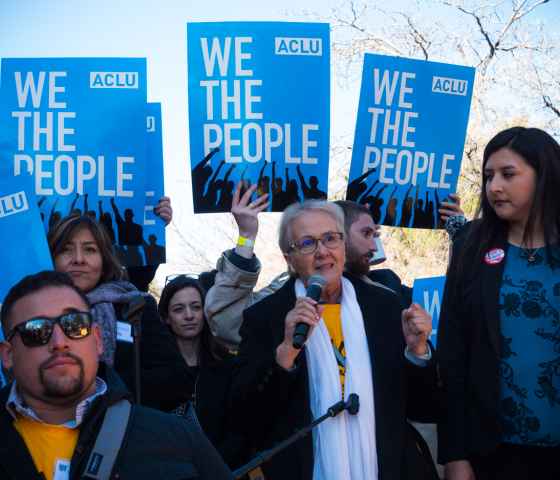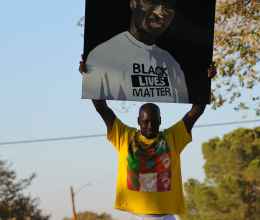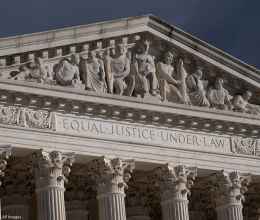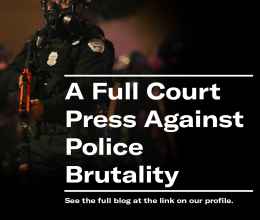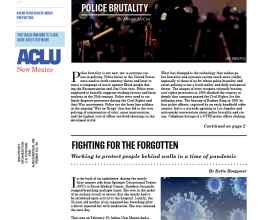ALBUQUERQUE, NM – Albuquerque Public Schools (APS) must adhere to state anti-discrimination laws, ruled the New Mexico Supreme Court today. The ruling comes after a Cibola High School teacher, in front of the entire class, cut one Native American student’s braid without consent and called another student, McKenzie Johnson, a “bloody Indian” on Halloween of 2018.
The decision upholds the June 2023 ruling of the New Mexico Appeals Court and finds that public schools are subject to the anti-discrimination protections in the New Mexico Human Rights Act. Further, this case, McKenzie Johnson v. Board of Education, overturns the 1981 precedent set in Human Rights Commission v. Board of Regents of University of New Mexico College of Nursing. The court remanded the lawsuit to the district court to be heard on the merits of the case.
Johnson is represented in the lawsuit by the American Civil Liberties Union (ACLU) of New Mexico, the New Mexico Center on Law and Poverty, and Parnall & Adams Law.
"I feel validated and relieved by the ruling today. It reaffirms the importance of respecting diversity and upholding the rights of Indigenous students like myself. No student should endure discrimination or disrespect in the classroom,” said Johnson. “I hope it serves as a wake-up call for educators to prioritize cultural sensitivity and create inclusive environments where every student feels valued and respected."
"The New Mexico Supreme Court's decision sets an important precedent for protecting the rights of students in our public school system and underscores the fundamental principle that all students, regardless of background, deserve to learn in an environment free from discrimination and harassment,” said ACLU of New Mexico Interim Executive Director, Leon Howard. “It's imperative that our educational institutions prioritize inclusivity and cultural competency to ensure that every student feels valued and respected. This decision reaffirms our commitment to upholding the dignity and rights of Native American students and all students across New Mexico."
On October 31, 2018, Johnson’s advanced placement English teacher, Mary Jane Eastin, dressed up as a “voodoo witch” for Halloween. During her advanced placement English class, she initiated a game in which she asked students questions, rewarded those who answered correctly with marshmallows, and gave dog food to those who answered incorrectly.
During the class, she approached a Native American student and asked her if she liked her braids. After the student replied affirmatively, she cut three inches from her hair with a pair of scissors. Soon after, Eastin asked Johnson if she was dressed as a “bloody Indian.” Registering the students’ shock, Eastin asked “What? She’s bloody and she’s an…,” stopping short of finishing her sentence, allowing her racist comments to linger.
Following public protests about the incident at school board meetings, APS announced that it had severed its relationship with Eastin but allowed her to remain on the school’s payroll to exhaust her paid leave before retiring.
"The New Mexico Supreme Court's ruling marks a crucial step towards addressing the systemic injustices faced by Native American students in Albuquerque public schools,” said ACLU-NM Senior Indigenous Justice Staff Attorney Preston Sanchez. “The mistreatment experienced by these students echoes the historical traumas inflicted upon Indigenous communities throughout our nation's history, particularly during the era of government boarding schools. By holding APS and all public schools in New Mexico accountable, the court sends a powerful message that the cycle of discrimination and harm must be broken. It's imperative that our educational institutions actively work to dismantle the legacies of racism and ensure that Native American students, and all students, are provided with a safe and equitable learning environment."
In addition to its claims that public schools are places of “public accommodation” and, thus, subject to the Human Rights Act’s anti-discrimination laws, Johnson’s lawsuit against APS charged that Eastin created a hostile learning environment and discriminated against Native American students. The complaint further alleged that APS failed to properly train teachers on the harms of racism and to provide for its students’ safety.
The special court hearing of Johnson v. Board of Education for APS took place at Central New Mexico Community College in front of hundreds of public school students from across the state.
